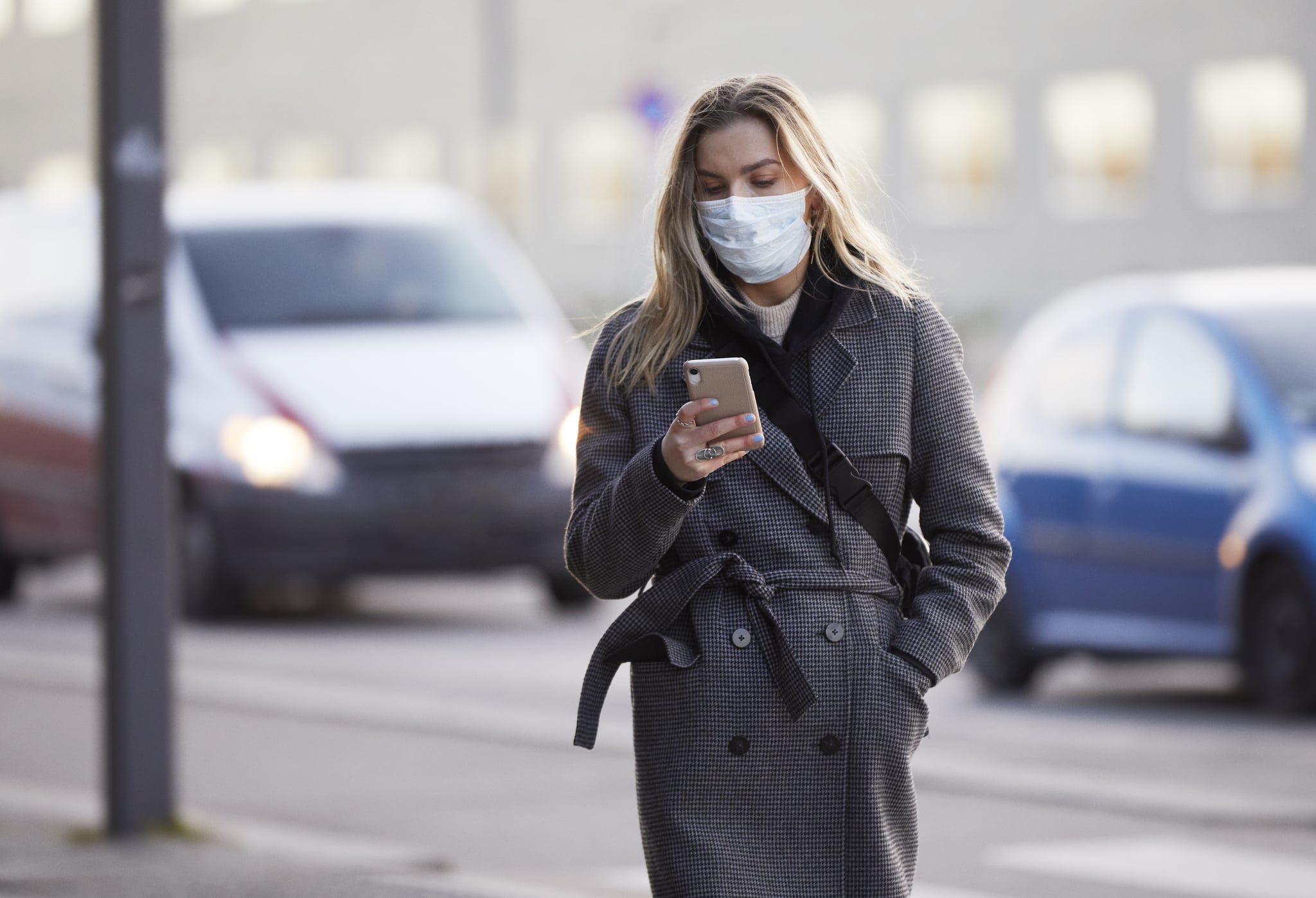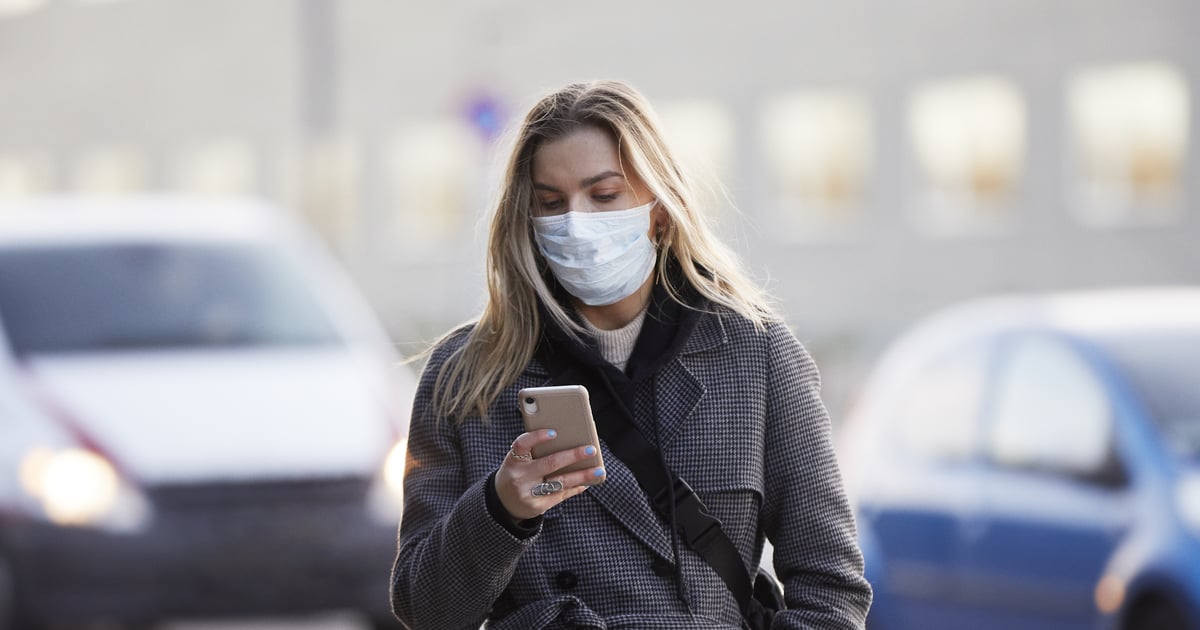
As Thanksgiving quickly approaches, it’s hard not to worry about the potential health risks of the day. “Large-scale crowd gatherings create hotbeds for the spread of diseases,” according to 2019 research from the Lancet. And Thanksgiving has a history of causing COVID-19 surges, per CNN.
But this year, COVID isn’t the only infection you may encounter. Now, experts say we could face the threat of three different infections — colloquially called a “tridemic” or “tripledemic” — created by simultaneous surges of COVID, the flu, and respiratory syncytial virus (RSV).
The flu is always common this time of year, and fall COVID-19 spikes are becoming common. But the nationwide surge in RSV, a respiratory virus causing cold symptoms that can become severe in young children and immunocompromised people, may have caught some of us by surprise. Some children’s hospitals are already overwhelmed and at capacity due to the RSV surge. Flu rates are also higher than usual for this time of year, according to the Centers for Disease Control and Infection (CDC), and The New York Times reports that rates of improvement for COVID-19 cases and hospitalizations have slowed. It’s all beginning to point in a worrisome direction.
“COVID cases, flu cases, and RSV cases are all starting to tick up,” confirms Dean Winslow, MD, an infectious-disease doctor at Stanford — but why is it happening now, and what can we do to protect ourselves if a tridemic is coming? Here’s what we know so far about the possibility of a tridemic this holiday season.
Will We See a Tridemic in Fall 2022?
Dr. Winslow says a tridemic of COVID-19, the flu, and RSV is possible this fall and winter, and it’s actually not a major surprise to the medical community. “Wintertime in the Northern Hemisphere is when we see a larger rate of respiratory infections,” he tells POPSUGAR. “You’re indoors more, and with viruses that are spread by small-particle aerosols and droplets, you’re more likely to be exposed in an indoor environment.” Relaxed travel restrictions, decreased mask-wearing, and low rates of vaccination for the flu and COVID-19 (particularly the bivalent booster) are also playing a role in the increased spread of these illnesses, he adds. RSV, in particular, is very common — nearly all children get an RSV infection by their second birthday, according to the CDC — but may be surging right now as young, pandemic-born children go into restriction-free areas and are exposed for the first time, experts told CNN.
It’s worth noting that you’re unlikely to contract more than one of these viruses at the same time, Dr. Winslow says, because your body’s immune response from fighting off one of them should provide some “very short-term” protection from the others. That’s at least some good news, because coming down with just one of these viruses is taxing enough. RSV can lead to more severe conditions like bronchiolitis, an infection of the small airways in the lung, which is especially dangerous for small and premature infants. Immunocompromised adults are also at greater risk of experiencing RSV complications and more serious cases of COVID-19 and the flu. And from a broader perspective, the overlapping surges of COVID, the flu, and RSV have the potential to overwhelm healthcare services that are already under strain.
How to Protect Yourself During a Tridemic
Getting vaccinated against COVID-19 (including boosters) and the flu is the number one way to stay safe during a potential tridemic this fall and winter, Dr. Winslow says. With the holiday season (aka lots of travel, parties, and indoor time) rapidly approaching, it’s important to make your vaccine appointments ASAP. “Now’s the time to get the two vaccines that are available that will help protect against serious illness and hospitalization and death,” Dr. Winslow says. (There is no RSV vaccine currently available, although one is in development.)
For large gatherings like Thanksgiving and Christmas, keep in mind “the more people one is exposed to, the more chance there is for respiratory virus transmission to occur,” says infectious-disease expert Amesh Adalja, MD, senior scholar at the Johns Hopkins University. Each event has its own dynamics (e.g., the ventilation, the vaccination status, etc.) regarding the risk factors that each attendee has, Dr. Adalja adds.
It’s important to “encourage people to stay home when sick, wash hands frequently, and if [you’re at] high risk for severe disease, wear a mask in congregated indoor settings,” Dr. Adalja says. “For extremely high-risk individuals, they can ask people to test for COVID pre-event.”
It’s also a good idea to dine and socialize outdoors when possible. “A lot of us in infectious diseases are still personally being very careful,” Dr. Winslow says. “Those are just small, prudent steps that you can take to additionally protect yourselves and protect others.”
If you’re not feeling well, make sure to take a COVID-19 test or a flu test (available at most pharmacies) and to stay away from others to avoid further transmission. While some cases of COVID-19, RSV (especially in adults), and the flu can be managed at home, Dr. Winslow recommends going to a doctor if you’re experiencing a persistent high fever or shortness of breath, which are concerning symptoms experienced across all three illnesses. For COVID-19, other signs to see a doctor include persistent pain or pressure in your chest, confusion, inability to wake up or stay awake, and discolored (bluish) skin, lips, or nail beds, according to the CDC. For the flu, see a doctor if you’re experiencing faintness, a severe sore throat, or a cough with lots of green or yellow mucus, according to UCSF. For RSV, the Mayo Clinic notes that warning signs to go to the doctor include bluish and discolored skin, lips, or nail beds in addition to high fever and difficulty breathing.
— Additional reporting by Alexis Jones
